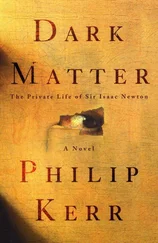Philip Kerr - A Man Without Breath
Здесь есть возможность читать онлайн «Philip Kerr - A Man Without Breath» весь текст электронной книги совершенно бесплатно (целиком полную версию без сокращений). В некоторых случаях можно слушать аудио, скачать через торрент в формате fb2 и присутствует краткое содержание. Год выпуска: 2013, Издательство: Quercus, Жанр: Триллер, на английском языке. Описание произведения, (предисловие) а так же отзывы посетителей доступны на портале библиотеки ЛибКат.
- Название:A Man Without Breath
- Автор:
- Издательство:Quercus
- Жанр:
- Год:2013
- ISBN:нет данных
- Рейтинг книги:4 / 5. Голосов: 1
-
Избранное:Добавить в избранное
- Отзывы:
-
Ваша оценка:
- 80
- 1
- 2
- 3
- 4
- 5
A Man Without Breath: краткое содержание, описание и аннотация
Предлагаем к чтению аннотацию, описание, краткое содержание или предисловие (зависит от того, что написал сам автор книги «A Man Without Breath»). Если вы не нашли необходимую информацию о книге — напишите в комментариях, мы постараемся отыскать её.
A Man Without Breath — читать онлайн бесплатно полную книгу (весь текст) целиком
Ниже представлен текст книги, разбитый по страницам. Система сохранения места последней прочитанной страницы, позволяет с удобством читать онлайн бесплатно книгу «A Man Without Breath», без необходимости каждый раз заново искать на чём Вы остановились. Поставьте закладку, и сможете в любой момент перейти на страницу, на которой закончили чтение.
Интервал:
Закладка:
‘I appreciate your professional zeal, captain. But surely the field police are dealing with that crime? Or the Gestapo? It’s what they’re for.’
‘Lieutenant Voss of the field police is a good man, sir. But it’s my information that there are still no suspects.’
‘Isn’t it possible that the corporal and the sergeant also murdered these two other fellows? Have you thought of that?’
Patiently I explained all of the facts, and why I thought Kuhr and Hermichen were innocent of those earlier crimes – not least the fact that both men had cast-iron alibis for the night in question – but the field marshal wasn’t having any of this.
‘The trouble with you detective fellows,’ he said, ‘is that you place too much emphasis on fancy notions like alibis. When you’ve handled as many military courts as I have you soon get to know all of the common soldier’s tricks and to understand just what they’re capable of. They’re all liars, Gunther. All of them. Alibis mean nothing in the German army. The ordinary Fritz in uniform will lie for his comrade just as soon as you or I would fart. Playing skat in the mess here until two o’ clock? No, I’m afraid it just won’t do. From what you’ve told me about the bayonet and the motorcycle, it seems perfectly obvious that you’ve already got the two most likely perpetrators for that crime, too.’
I glanced at Dyakov, but Dyakov pursed his lips and shook his head discreetly, and it was then plain to me that there was little point in arguing with Von Kluge. All the same I tried.
‘But sir …’
‘No buts, Gunther. We’ll try ’em both in the morning. And hang the bastards after lunch.’
I nodded curtly and then got up to leave.
‘Oh, and Gunther, I’d like you to prosecute, if you wouldn’t mind.’
‘I’m not a lawyer, sir. I’m not sure I know how.’
‘I’m aware of that.’
‘Couldn’t Judge Conrad do it?’
Johannes Conrad was the bureau judge that Goldsche had already dispatched to Smolensk. Since his arrival, he and Gerhard Buhtz – a professor of forensic medicine from Berlin – had been kicking their heels waiting for more evidence of a massacre.
‘Judge Conrad is going to judge the case, with me and General von Tresckow. Look, I’m not asking you to cross-examine them, or anything like that. You can leave that to me. Just lay the facts and the evidence before the court – for appearances’ sake – and we’ll do the rest. You must have done that before, when you were a police commissar.’
‘Might I ask who’s going to defend the men?’
‘This isn’t meant to be an adversarial process,’ said Von Kluge. ‘It’s a court of inquiry. Their guilt or innocence isn’t to be determined by advocacy but by the facts. Still, perhaps you’re right – under the circumstances someone ought to speak for them. I’ll appoint an officer from my own staff to give them a fair shake. Von Tresckow’s adjutant, Lieutenant von Schlabrendorff. He trained as a lawyer, I think. Interesting fellow, Von Schlabrendorff – his mother’s the great-greatgranddaughter of Wilhelm the first, the Elector of Hesse, which means that he’s related to the present king of Great Britain.’
‘I could do it more effectively, sir. Defend the men. Instead of prosecuting them. I’d feel more comfortable doing that. After all, it will give me another chance of arguing for clemency on behalf of Corporal Hermichen.’
‘No, no, no,’ he said, testily. ‘I’ve given you a job to do. Now damn well do it. That’s an order.’
CHAPTER 2
Saturday, March 27th 1943
The trial of Sergeant Kuhr and Corporal Hermichen took place the following morning at the army Kommandatura in Smolensk, which was less than a kilometre north of the prison. Outside the air had turned to the colour of lead and it was obvious that snow was on the way, which most people agreed was a good thing, as it meant the temperature was starting to climb.
Judge Conrad took the role of presiding judge with Field Marshal von Kluge and General von Tresckow assisting; Lieutenant von Schlabrendorff spoke for the accused; and I presented the facts that were ranged against them. But before proceedings commenced I spoke to Hermichen briefly and urged him to tell me anything he knew about the murders of the two telephonists.
‘In return I’ll inform the court that you have given the field police some important information that might lead to the arrest of another criminal,’ I said. ‘Which might weigh well with them – enough to show you some leniency.’
‘I told you, sir. When I know I’m off the hook I’ll tell you everything.’
‘That isn’t going to happen.’
‘Then I’ll have to take my chances.’
The hearing – it was hardly a trial – took less than an hour. I knew it was within my remit to press for a verdict and a sentence, but in the event I did neither, as I had little appetite for urging upon the court the execution of a man I suspected could solve a crime. About Sergeant Kuhr I felt more ambivalent. But there was another factor, too. Before the Nazis, I had strongly believed in capital punishment. Every cop in Berlin had believed in that. In my time at the Alex I had even attended a few executions, and while I took no satisfaction in the sight of a murderer being led kicking and screaming to the guillotine, yet I felt justice had been served and the victims had been properly avenged. Since Operation Barbarossa and the invasion of the Soviet Union, I had come to think that every German had played some part in a crime greater than had ever been seen in any courtroom, and to that extent I felt less than comfortable with the whole hypocrisy of prosecuting two soldiers for doing what an SS man from any police battalion would have considered to be all in a day’s work.
To his credit, Von Schlabrendorff spoke well for the accused men, and the three judges actually seemed inclined to give his words some weight before they retired to consider their verdict. But it didn’t take the trio long before they were back in the courtroom and Judge Conrad was pronouncing a sentence of death, to be carried out at once.
As the men were led away, Hermichen turned and called to me:
‘Looks like you were right, sir.’
‘I’m sorry about that. Really I am.’
‘Are you coming to see the show?’
‘No,’ I said.
‘Perhaps I’ll tell you what you want to know just before they put the noose around my neck,’ said Hermichen. ‘Perhaps.’
‘Forget it,’ I said. ‘I won’t be there.’
But I knew I would be, of course.
*
It was cold in the prison yard. Snow was falling gently from the breathless sky as if thousands of tiny Alpine paratroopers were taking part in some huge airborne invasion of the Soviet Union. It silently covered the crossbar of the gallows, turning its simple dark geometry into something almost benign, like a length of cotton wool on the Christmas crib in a quiet country church, or a layer of cream on a Black Forest cake. The two ropes that were curled underneath the icing-sugared beam might have been decorative, while below these tenantless holes in the air, the little flight of precarious wooden steps that led the way to pendulous death looked like something that had been provided by a more thoughtful soul, as if some child might have had need of them to reach a sink to wash its hands.
In spite of what was about to happen it was hard not to think of children. The prison was surrounded by Russian schools – one on Feldstrasse, one on Kiewerstrasse and one on Krasnyistrasse – and as I’d parked my car outside the prison a snowball fight had been in progress and the sound of their playing and laughter now filled the freezing air like a flight of emigrating birds. For the two men who were awaiting their fate that carefree sound must have provoked a painful memory of happier times. Even I found it depressing, reminding me as it did of someone I’d once been and wouldn’t be again.
Читать дальшеИнтервал:
Закладка:
Похожие книги на «A Man Without Breath»
Представляем Вашему вниманию похожие книги на «A Man Without Breath» списком для выбора. Мы отобрали схожую по названию и смыслу литературу в надежде предоставить читателям больше вариантов отыскать новые, интересные, ещё непрочитанные произведения.
Обсуждение, отзывы о книге «A Man Without Breath» и просто собственные мнения читателей. Оставьте ваши комментарии, напишите, что Вы думаете о произведении, его смысле или главных героях. Укажите что конкретно понравилось, а что нет, и почему Вы так считаете.












